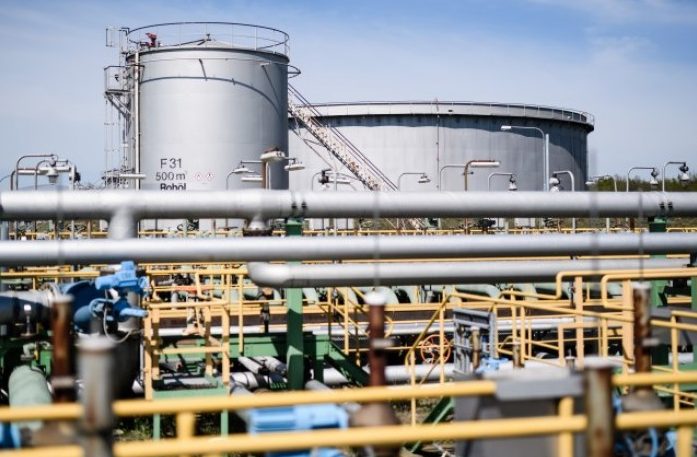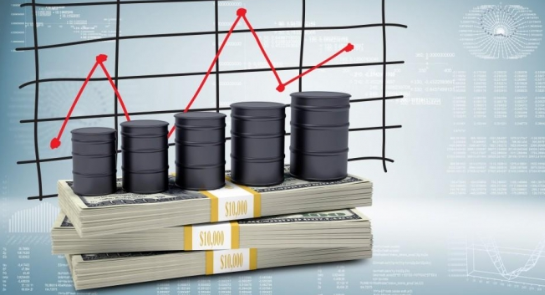Expert warnings: The price of oil can rise up to 380 dollars per barrel

While the rise in oil prices as a result of the Russian invasion of Ukraine is already threatening economic, political and social stability wide world with recession warnings, analysts predict that the price of "black gold" it can be further increased, more than three times compared to the current prices, the world media write.
Prices to the stratosphere
The analysts of JP Morgan Chase warned that global oil prices could reach “stratospheric heights" with about $ 380 per barrel if Russia responds to American and European sanctions by reducing oil production, writes the American magazine Bloomberg.
The members of the countries of the Group of Seven (G7) are considering a mechanism to cap the price of Russian oil in an attempt to stop Vladimir Putin's war machine in Ukraine.
On the other hand, JP Morgan Chase analysts estimate that given Moscow's strong fiscal position, Russia can afford to cut daily crude oil production by five million barrels without excessive damage to the economy.
For the rest of the world, however, it could be disastrous, with analysts estimating that a three-million-barrel-a-day output cut would push benchmark oil prices in London to $ 190 per barrel, while the worst case scenario if reduced by five million barrels of Russian production that would можеLo to mean that the price of oil could reach incredible $ 380 per barrel.
Гglobal energy crisis worse than the 70s?
The CEO of International Energy Agency (IEA), Fatih Birol, has warned that the world is on "red alert for an economic recession" as energy prices rise, creating a global inflationary crisis, writes the British "The Times".
Birol led that the current situation is the "first global energy crisis", worse than the oil shock of the 1970s, because it involves both oil and gas and electricity in one.
The Organization of Petroleum Exporting Countries (OPEC) and its allies agreed last week to increase production by 648.000 barrels a day.
While analysts predict that the price of a barrel of oil could jump from around 110 to 380 dollars, Birol pointed out that (IEA) has called on Saudi Arabia and other members to increase production, the London newspaper points out.
"We need countries that have spare production capacity to tell the world that they will be ready to bring more oil to market. Saudi Arabia has proven to be a responsible exporter. And I hope that he will once again show his constructive role in these difficult days - said Birol.
Although G7 and IEA agreed to explore caps on Russian oil prices to reduce Moscow's revenues, critics say The Times, warn that it is unlikely to succeed without the support of countries such as China and India. Birol himself pointed out that "this cannot happen only as a result of the actions of the G7 countries".
The effect of oil prices on economies
The massive increase in fuel prices worldwide is already threatening sources of income and social stability, he writes New York Times, stating that the dizzying growth the prices of gas and oil as a result of the Russian invasion of Ukraine increased additionally the problems caused by disruptions caused by the pandemic cove .
In S.BP, average gas prices that have jumped to five dollars a gallon are burdening consumers and forcing President Joe Biden to make tough political decisions ahead of congressional elections this fall. However, as the newspaper writes, in many places around the world the jump in fuel costs is much more dramatic, and the consequences are much more serious, families worry about how to fill the tank in their cars, heat and light their homes or cook food, while fuels are struggling with rising transportation costs, and business is fighting with workers' demands for salary increases.
The staggering rise in fuel prices has the potential to change economic, political and social relationships around the world. states The New York Times, pointing out that high energy costs have a domino effect, fueling inflation, forcing central banks to raise interest rates to increase interest rates rates, which then reduces economic growth and hinders efforts to combat devastating climate change.

Smallest economies, most affected
However, the poorest and most vulnerable states will feel the worst consequences, the New York Times points out, pointing to the International Energy Agency's warning last month that due to higher energy prices, an additional 90 million people in Asia and Africa have no to have access to electricity.
Expensive energy contributes to high food prices, lowers living standards and exposes millions to hunger. Political discontent over the price hike is felt in many places where the war in Ukraine seems distant or irrelevant, while in poorer countries the threat is greater as governments are torn between dealing with serious unrest and supply behind additional state aid, which requires heavy borrowing.



